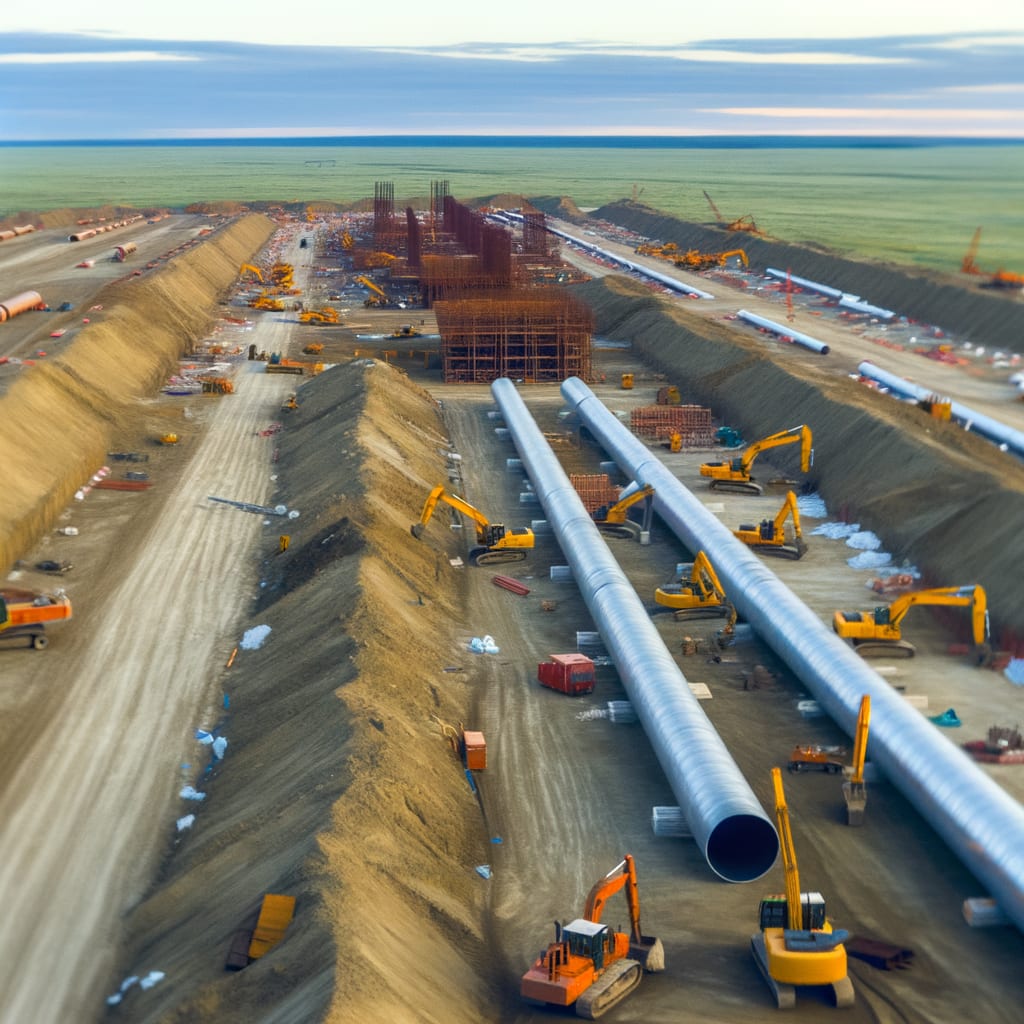Russia and China Sign Landmark Gas Pipeline Deal Amid Energy Pivot
Russia and China have signed a legally binding agreement for the construction of the 'Power of Siberia 2' gas pipeline, marking a significant shift in Moscow's energy export trajectory and strengthening Sino-Russian ties. The deal, dubbed the most ambitious,
has been delayed due to Beijing's hard bargaining over prices and volumes. Gazprom CEO Alexey Miller refrained from indicating the payment currency, creating speculation over cost-sharing uncertainties.
Background and Context
This bilateral agreement comes amid Russia's pivot towards Asia, as it loses access to European energy markets. The pipeline is expected to export 50 billion cubic meters of gas annually to China. It represents a move to increase supplies to the People's Republic following the war in Ukraine. The pipeline, valued at US$13.6 billion, will be constructed from already developed and promising deposits in Western Siberia through Mongolia's territory.
Key Developments
The 'Power of Siberia 2' pipeline agreement was signed in Beijing, with Chinese President Xi Jinping giving 'old friend' Russian President Vladimir Putin a warm welcome, praising Sino-Russian ties. In response, Putin thanked 'dear friend' Xi for the warm reception. The agreement, designed for thirty years, has been hailed as a diplomatic victory for Putin and sets a new standard for strategic relations between Russia and China.
The pipeline construction, expected to take up to five years, is anticipated to be the largest project in the gas industry, according to Gazprom. Issues related to the financing of gas pipeline construction and commercial terms of supplies will be discussed and updated.
Implications and Reactions
The agreement signals a clear shift in Russia's energy exports, according to a Research Fellow at the Quincy Institute for Responsible Statecraft. However, the deal may face 'key obstacles' due to the long-delayed nature of the Power of Siberia 2 gas pipeline. Analysts have focused on energy, particularly the pipeline, during the Shanghai Cooperation Organisation summit, where Putin and Xi appeared 'hand in hand.'
While Bloomberg has hailed the Power of Siberia 2 agreement as a diplomatic victory for Putin, there is still speculation about the partnership's limits between China and Russia beyond the optics.
Conclusion
The Power of Siberia 2 gas pipeline agreement between Russia and China marks a significant pivot in Moscow's energy export strategy, deepening their energy ties and setting a new standard for strategic relations between the two nations. Despite uncertainties over cost sharing and the currency of payment, the ambitious project is set to increase gas supplies to the People's Republic over the next thirty years. The construction of the pipeline, involving territories across Siberia and Mongolia, is expected to commence soon and take up to five years to complete.

